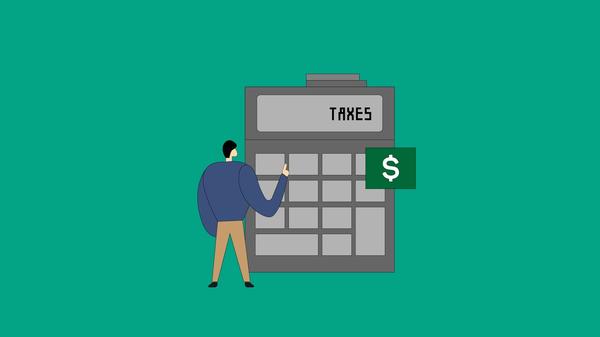Before an estate can be distributed in Canada, you will need to obtain a tax clearance certificate first. This certificate is given from the Canada Revenue Agency (CRA) and it verifies that all taxes due from the estate have been paid.
The Purpose of a Tax Clearance Certificate
The tax clearance certificate serves two different purposes. The first thing it does is to verify that a deceased individual or a dissolved corporation has paid all past and current tax obligations with interest. If you are an executor of an estate, the second thing it does is to provide you with the assurance that the assets can be distributed without being held personally liable. In addition to being given to the executor of a deceased individual, certificates are also given to the legal representative when a corporation or trust has been dissolved.
Why Are Tax Clearance Certificates Important
Canada's tax clearance certificates are given after the deceased individual's tax records have been searched by the CRA. Final taxes are sent to the CRA by the executor of the estate. Once received, the account will be investigated to ensure no back taxes are still due. If the estate were to be distributed prior to receiving a clearance certificate, the executor could be held personally liable for back taxes.
About Back Taxes
Even though back taxes owed may not be discovered right away, it is possible that some could be revealed later. It largely depends on the amount of information that is submitted to the CRA and the accuracy of past tax records. If there is a problem, the CRA will likely conduct an audit before a clearance certificate could be issued.
How Long It Takes
Once you send the requested information concerning taxes to the CRA, you will first receive a letter acknowledging the receipt of your request within 30 days (possibly longer due to COVID-19). The evaluation of the tax documents for the estate could take up to 120 days.
Putting the Finances in Order
In most cases, the assets of the deceased will need to be put on hold for some time. The entire process before the beneficiaries can receive the assets will usually take between 6-9 months.
During this time, the executor of the estate will need to collect all the bills that are to be charged against the estate. This will include fees such as:
- Funeral and burial costs
- Accountant fees
- Lawyer fees
- Bills against the property (utilities, etc.)
- Cost of probate
- Taxes – City and income taxes
- Other claims – credit card debt, loans, etc.
The individual that is collecting all of the bills against the estate will need to be thorough. It will involve placing an ad in a government publication called the BC Gazette to notify creditors to contact you about any existing debt. Creditors are given 30 days after the placement to make contact about the bill. Examinations of past tax forms will also need to be conducted to ensure that all previous taxes have been paid. If not, they need to be filled in and submitted to the CRA. Any income that the estate earns after the death of the deceased also needs to be reported.
Tax Clearance Certificates Not Always Needed
The CRA reveals that there are some circumstances when a certificate is not needed. After an individual dies, a certificate is not needed if the estate or trust is maintained to provide a further income to the beneficiaries. It is also unnecessary if enough money is left in the estate or the corporation to be able to pay all taxes owed.
Another occasion when a certificate is not needed is when a corporation is being sold. If all the assets and liabilities are transferred to another corporation and they are equal to or greater than any tax obligations.
Inheritance Tax Laws in Canada
Canada does not have an inheritance tax, which means that all earned income is reported on a final tax return. This income is taxed at the regularly earned income bracket. Any non-registered capital assets are taxed on fair market value and assumed to have been sold right before the death of the individual. Their total value is added to the tax forms as a capital gain and it is taxed at 50%.
Retirement plans must also be added to the income for the deceased individual. This includes the Registered Retirement Income Fund (RRIF) or a Registered Retirement Savings Plan (RRSP). It also will be taxed at the regular income rate for the individual.
Some items can be passed on to another person without the need for going through probate. This applies to things not mentioned in the will. When property is owned jointly, it becomes automatically transferred to the other owner. This includes property that is owned in a joint tenancy or a bank account. All other types of land ownership will require that it goes through probate.
Probate is not required in Canada for estates involving less than $25,000. The exception is if the assets are owned by an organization, then probate will be necessary. If probate is required, distribution cannot take place before 210 days have passed.
When to Request a Tax Clearance Certificate
Before filing for the tax clearance certificate, which needs to be done by a legal representative, the required bills need to have been satisfied and taxes paid. A list of remaining money and assets in the estate, as well as the executor's itemized bill, needs to be submitted to the beneficiaries for their approval. Any claims against the estate will also need to be settled before requesting the certificate.
The Forms
Applications for a tax clearance certificate can be submitted electronically to the CRA. The forms needed are the TX19 or GST352.
If you are receiving an inheritance and are looking to invest it, or if you are looking to ensure an existing investment earns money as it should, specialized software from Passiv can help you make the right decisions. The software helps you identify the best investment choices, keep your portfolio balanced, and reduces the time needed to make trades. It also helps to keep your portfolio balanced and can make automatic trades for you, based on your parameters. Keeping your money invested is also another feature because you are notified whenever more cash is made available. It works with brokerages such as Ameritrade, Interactive Brokers, Alpaca, and Questrade.


